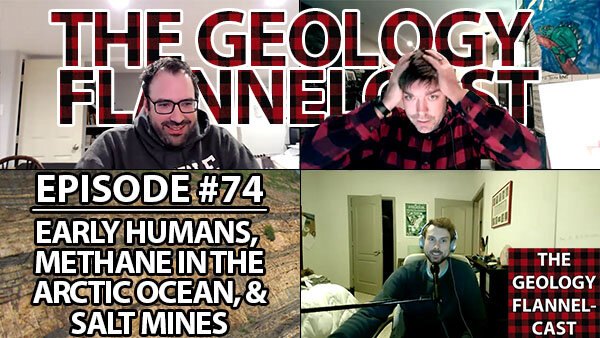Go offline with the Player FM app!
Episode 74 - Early Humans, Methane in the Arctic Ocean, & Salt Mines
Manage episode 290143687 series 31053

The Flannelcasters talk about a new study suggesting that early humans may have hibernated, another study that pushes back the date when early humans arrived in North America, how methane releases in the Arctic Ocean are affected by tides, and salt mines in Louisiana.
Links:
1 miner dead, 1 still missing after roof collapse at Cargill salt mine in Louisiana
New Evidence Supports Controversial Claim of Humans in The Americas 130,000 Years Ago
Ancient humans may have hibernated to survive brutal glacial winters
Earliest evidence for humans in the Americas
The moon controls the release of methane in Arctic Ocean
Out of Eden Walk
150 episodes
Manage episode 290143687 series 31053

The Flannelcasters talk about a new study suggesting that early humans may have hibernated, another study that pushes back the date when early humans arrived in North America, how methane releases in the Arctic Ocean are affected by tides, and salt mines in Louisiana.
Links:
1 miner dead, 1 still missing after roof collapse at Cargill salt mine in Louisiana
New Evidence Supports Controversial Claim of Humans in The Americas 130,000 Years Ago
Ancient humans may have hibernated to survive brutal glacial winters
Earliest evidence for humans in the Americas
The moon controls the release of methane in Arctic Ocean
Out of Eden Walk
150 episodes
All episodes
×Welcome to Player FM!
Player FM is scanning the web for high-quality podcasts for you to enjoy right now. It's the best podcast app and works on Android, iPhone, and the web. Signup to sync subscriptions across devices.




